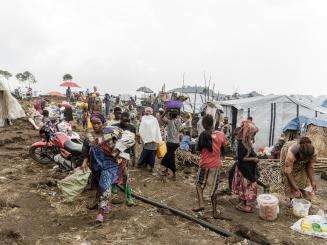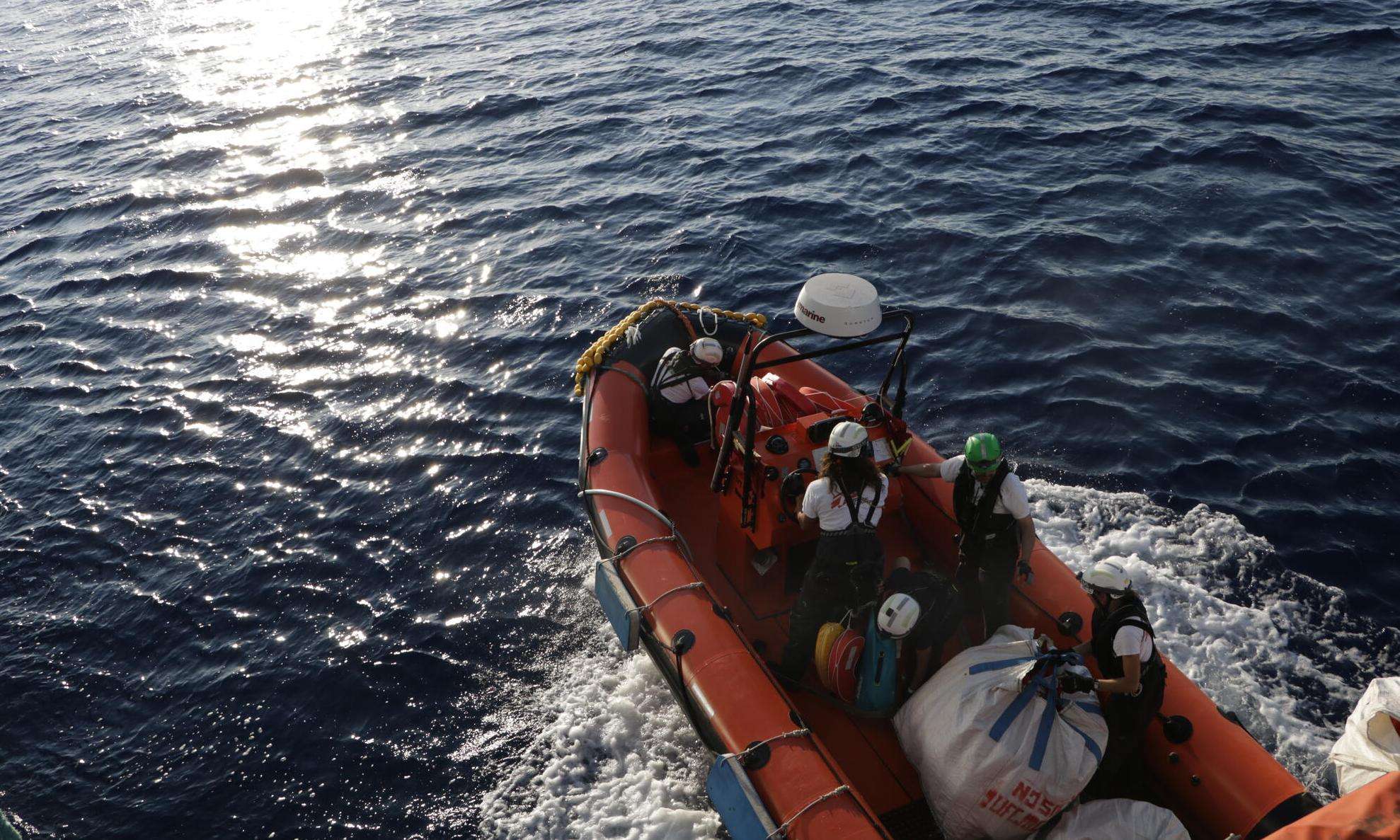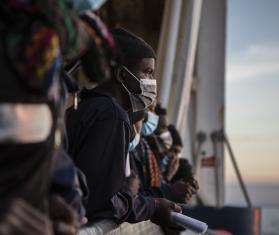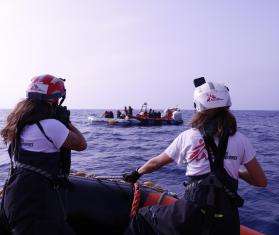Each year, thousands of people embark on a perilous journey to reach safety in Europe, only to find abuse and mistreatment instead. Frequent shipwrecks, arbitrary detentions, torture, and sexual violence make the central Mediterranean the most dangerous—and most deadly—migration route in the world. It’s becoming even more treacherous under European Union (EU) policies that shun migrants and criminalize organizations responding to the resulting humanitarian crises, including Doctors Without Borders/Médecins Sans Frontières (MSF).
Our teams throughout the region witness the impact these policies have on our patients’ health, wellbeing, and dignity. Here are some of the ways EU migration policies put displaced people at risk—and how MSF is responding.
Obstructing search and rescue
The central Mediterranean migration route claims thousands of lives each year—and there’s no telling how many deaths go unrecorded when boats sink without a trace before anybody can call for help.
EU states have a legal obligation to help those in distress at their borders. Instead, they are blocking humanitarian search and rescue operations by creating unnecessary delays and detaining rescue ships, including MSF’s Geo Barents—resulting in periods as long as six months with almost no rescue capacity in the region at all.
While these policies ostensibly target humanitarian organizations, people seeking safety have paid the real price. MSF teams provide critical medical care aboard our ships, including treating fuel burns, assisting births, and coordinating transport of patients by helicopter or boat in the most urgent cases. Since 2015, our teams have conducted 784 search and rescue operations, reaching more than 88,000 people in need of aid.
MSF has launched several appeals in European courts to challenge this obstruction of our search and rescue work.

Normalizing border violence
To justify inhumane actions against migrants, EU leaders—including in Greece, Poland, Hungary, and Lithuania—are manipulating public narratives that fuel xenophobia and often result in violent pushbacks at border crossings.
In response, MSF teams positioned at key border crossings are treating injuries, including wounds and fractures caused by 16-foot razor wire fences and trauma from being forcibly turned away. We’re demanding the investigation of hundreds of disappearances of people assumed to have been forced back to sea. And we're calling for safe and dignified conditions for those who remain on land.
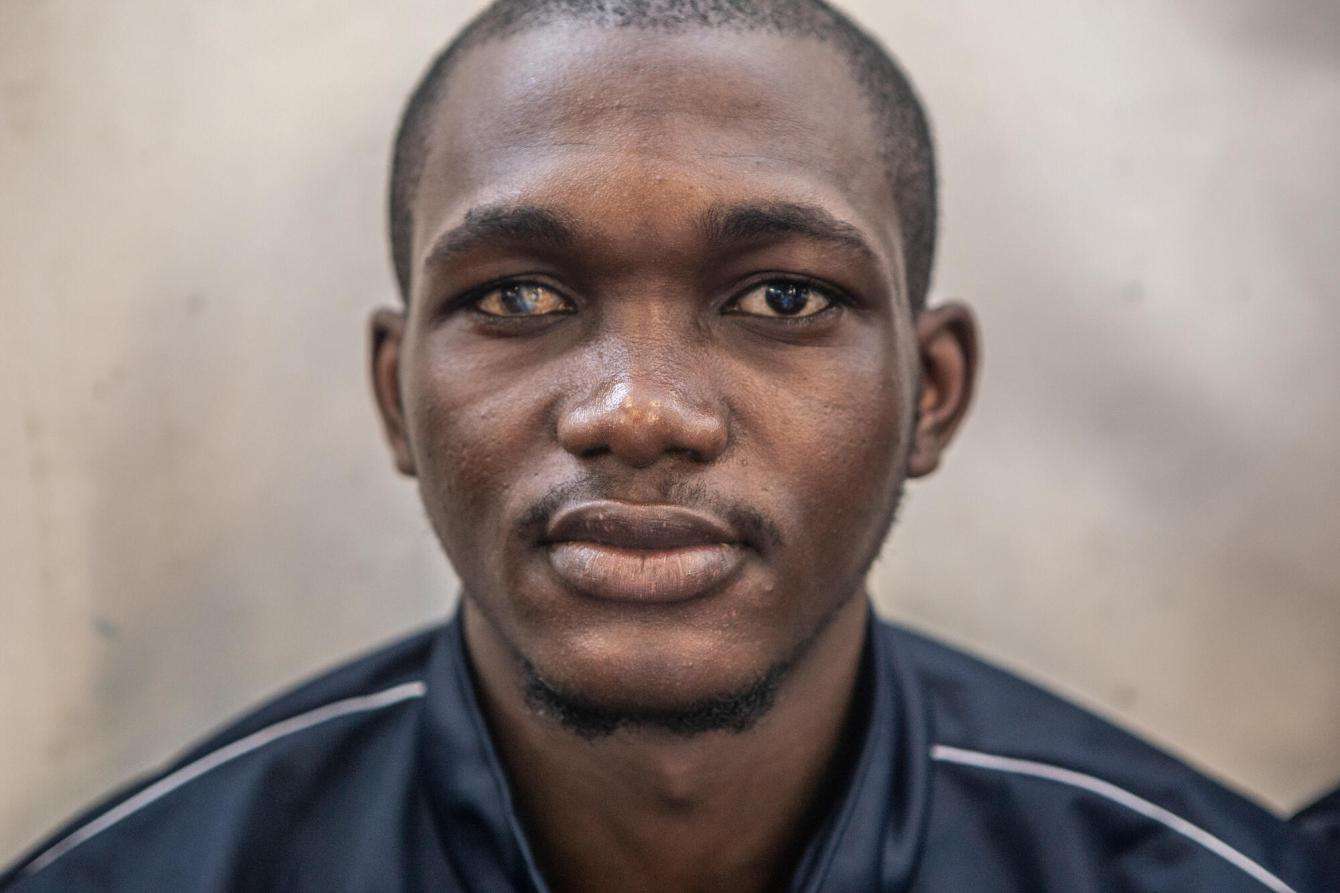
Creating "hotspots" of inhumanity
New legislative proposals double down on the “hotspot” model, which prioritizes detention and deportation over protection. MSF teams have been responding by providing primary health care, treatment for chronic diseases, psychosocial and psychiatric care, and other medical support, in addition to social and legal support for people seeking asylum. We also provide shelter, water and sanitation, and essential relief items at reception centers, informal settlements, and transit camps.
Outsourcing harm to Libya
Most people migrate to Europe via Libya, where smugglers send them off to sea with increasingly dim chances of ever reaching their destination. The EU partners with the Libyan Coast Guard to intercept and forcibly return migrant boats to Libyan ports. Of the 253,205 people who attempted to cross the Mediterranean last year, 42 percent were intercepted and sent back to port by Libyan authorities with the financial backing of the EU.
Returning asylum seekers to Libya is a clear breach of international maritime, refugee, and humanitarian law. In Libya, migrants are targets of violence, extortion, and arbitrary detention, with serious consequences to their physical and mental health.
As one of the few international nongovernmental organizations working in Libya, MSF teams provide health care and psychosocial support to migrants in detention centers and camps, including organizing the transfer of seriously ill patients to hospitals. Since starting migrant relief efforts in Libya in 2016, however, it has become almost impossible to ensure protection and continuous medical care for our patients.
What we're calling for
Whether or not they make it to Europe, all migrants should be treated with dignity and humanity, and should be able to access basic needs and a fair chance at asylum. The overwhelming support of Ukrainian refugees since February 2022 proves that the EU is capable of responding humanely—all that’s lacking is political will.
July 13 01:03 PM
Alert Summer 2023: Lives uprooted
Stories of displacement and finding safety.
Read More